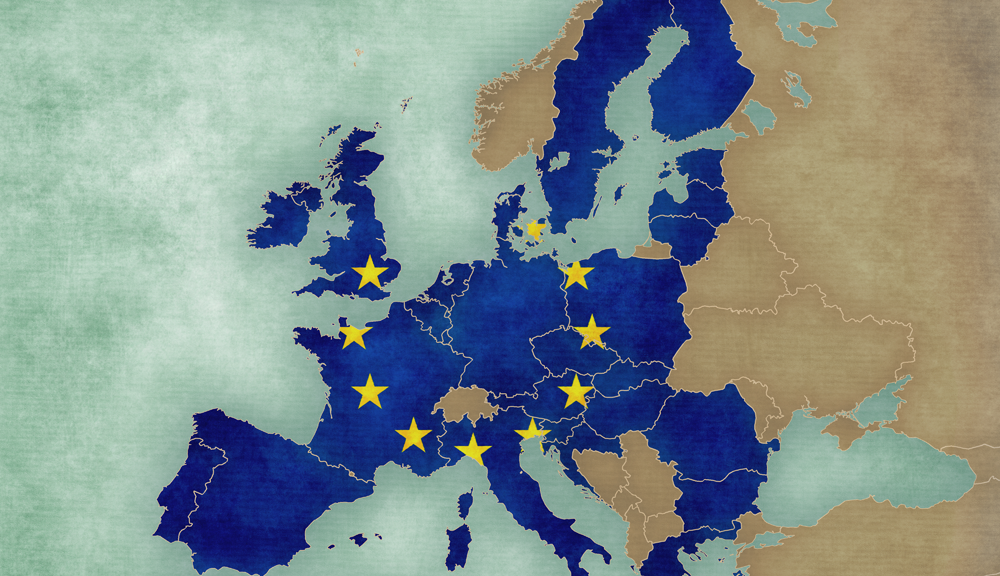MarketMuse update courtesy of extract from ETF Trends’ Tom Lydon.
European equities and related exchange traded funds could outperform in 2015, capitalizing on lower energy prices, an improved export outlook and potentially more European Central Bank easing.
For instance, the iShares MSCI EMU ETF (NYSEArca: EZU) and the SPDR EURO STOXX 50 (NYSEArca: FEZ) both focus on Eurozone countries.
Alternatively, investors seeking to capture Eurzone market exposure can also consider a hedged-equity ETF that will help diminish the negative effects of a depreciating euro currency. For example, the Deutsche X-Trackers MSCI Europe Hedged Equity ETF (NYSEArca: DBEU), iShares Currency Hedged MSCI EMU ETF (NYSEArca: HEZU)and WisdomTree Europe Hedged Equity Fund (NYSEArca: HEDJ) hedge against the euro currency and would outperform a non-hedged Europe equity ETF if the euro currency continues to depreciate.
DBEU, though, takes a slightly broader approach to the European markets, including about a 40% combined tilt toward the United Kingdom and Switzerland. HEZU and HEDJ only cover Eurozone member states.
Wall Street analysts believe that European equities could be one of the best places to invest in 2015, reports Sara Sjolin for MarketWatch.
“Europe was a market ‘darling’ this time last year, then became a pariah,” economists at Morgan Stanley said in a research note. “[Now] we like European equities, (especially cyclicals) and European ABS.”
Mislav Matejka, chief European equity strategist at J.P. Morgan, even predicts that Eurozone stocks could outperform U.S. equities next year.
Specifically, the investment banks are pointing to three factors that will support the region: the ECB, a cheap euro currency and low oil prices.
ECB President Mario Draghi has hinted that the central bank could introduce further stimulus in early 2015 and even enact a bond purchasing program.
“The mantra is ‘Don’t fight the ECB’ — the central bank is set to inject €1,000 billion and to add sovereign bonds to its buying program,” analysts at Société Générale said in a research note.
While the euro currency has depreciated 10% against the U.S. dollar so far, analysts believe there is more room to fall after the ECB enacts further easing. Consequently, the weak euro will help bolster the Eurozone’s large exporting industry, making goods cheaper for foreign buyers. Morgan Stanley predicts the cheap currency could add at least 2% to earnings per share for European companies next year.
Lastly, lower energy prices will have an immediate effect on consumers, allowing Europeans to spread around their cash for discretionary purchases and spur growth. Additionally, the cheap oil will lower input costs for companies’ profit margins and lift earnings.
Furthermore, analysts believe that if the ECB begins a quantitative easing plan, the financial sector will be a key beneficiary. Most major Eurozone banks are already in good shape and should capitalize on improved credit supply and loan demand. For targeted Europe financial exposure, investors can take a look at the iShares MSCI Europe Financials ETF (NYSEArca: EUFN). However, the ETF does not hedge against currency risks.

